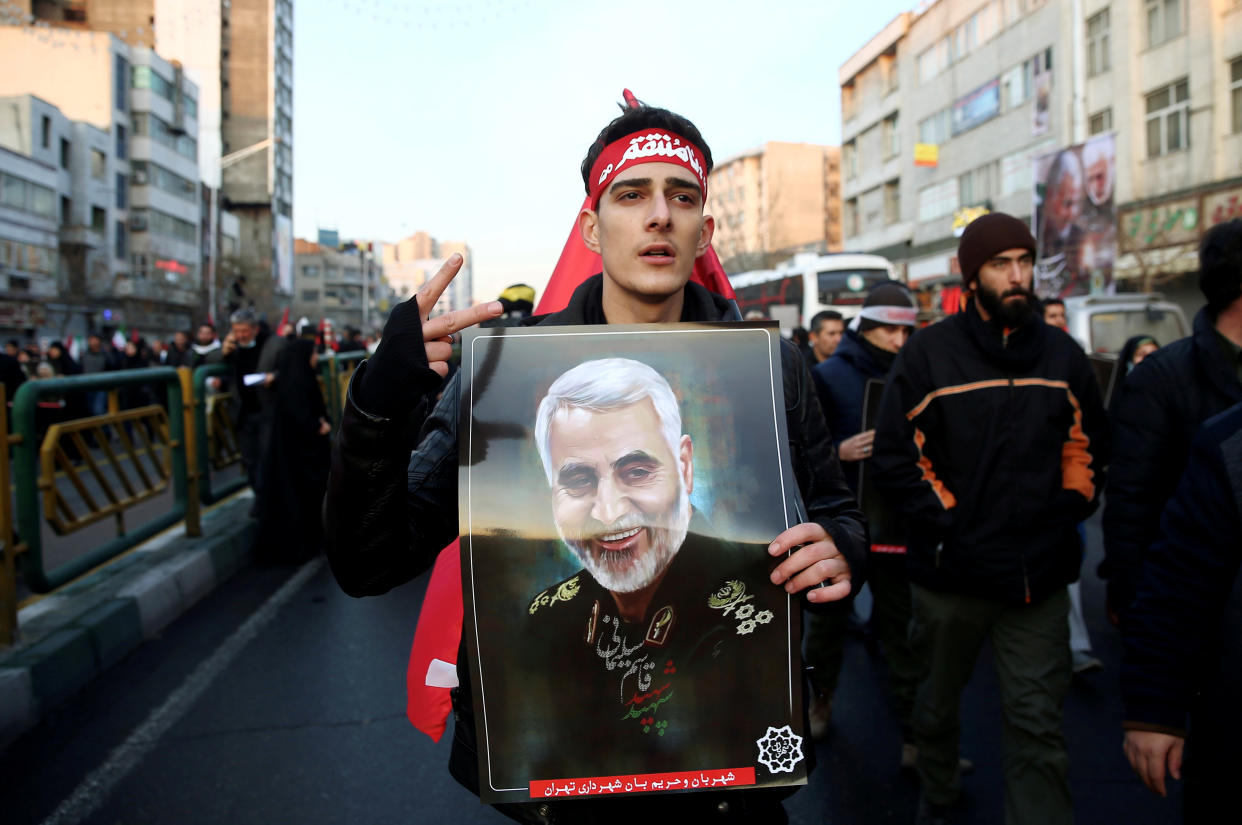What to Watch: Stocks slide on Iran fears, oil and gold spike, and UK car sales slump

Here are the top business, market, and economic stories you should be watching today in the UK, Europe, and abroad:
Stocks dive on Iran tensions
Stocks continued to be under pressure on Monday amid heightened tensions between Iran and the US.
Huge crowds took to the streets of Iran on Sunday for the funeral of General Qassem Soleimani, who was killed by a US airstrike last week.
Iran’s leader has vowed revenge for the attack and the country announced it was pulling back from key parts of the 2015 nuclear agreement on Sunday. International observers on all sides have urged a de-escalation of tensions.
The FTSE 100 (^FTSE) was down over 1%, Germany’s DAX (^GDAXI) cratered 1.7%, France’s CAC 40 (^FCHI) dropped 1.2%, and the Euronext 100 (^N100) was down 1.3%.
“It seems that risk premiums, pre-empting an expected retaliation from Iran, are slowly creeping back into the equation for global markets,” said Bethel Loh, a macro strategist at trading platform ThinkMarkets, said.
Overnight in Asia, Japan’s Nikkei (^N225) closed down 1.9%, while the Hong Kong Hang Seng Index (^HSI) ended down 0.7%, and China’s Shanghai Composite (000001.SS) was flat.
US stocks futures point to a lower. S&P500 futures (ES=F) were down 0.7%, Dow Jones futures (YM=F) were down 0.8%, and Nasdaq futures (NQ=F) were down 0.8%.
Oil and gold spike
Investors continued to flock to oil and gold on Monday amid the escalation of tension between the US and Iran.
The oil price (CL=F; BZ=F) was up 2% to $70 per barrel, due to supply concerns should the tension escalate.
Iran sits on the Strait of Hormuz, a waterway that is crucial for the global oil trade. Around a third of all seaborne oil trade moves through the narrow sea passage.
Meanwhile, gold (GC=F) prices continued to move higher, hitting a six-year high. The ‘safe-haven’ asset was up 1.5% to $1,576.20 (£1,205.27).
Car sales hit six-year low due to Brexit
UK car sales fell to a six-year low in 2019 as the industry contended with Brexit-related uncertainty and consumer confusion about clean air zones and diesel vehicles, according to the Society of Motor Manufacturers and Traders (SMMT).
Some 2.3 million new cars were registered in the UK in 2019, a 2.4% drop-off on the previous year.
Last year, which saw the lowest annual total car registrations since 2013, was the third consecutive year that car sales declined.
SMMT CEO Mike Hawes said on Monday that 2019 was “a turbulent 12 months” for the UK auto sector, noting that the decline in sales was “a major challenge”.
FTSE CEO pay under scrutiny
The CEOs of the UK’s top 100 companies earn so much that they will have already been paid more than the average full-time employee by the end of the third working day of the year.
The median pay for CEOs of companies listed on the FTSE 100 index is 117 times higher than that of the average worker in the UK, which means that they will have earned more than the UK average wage of £29,559 by 5pm on Monday 6 January.
The findings come as part of new research released by the Chartered Institute of Personnel and Development (CIPD).
According to the research, the average FTSE 100 boss was paid £3.46m in 2018 — or £901.30 an hour.

